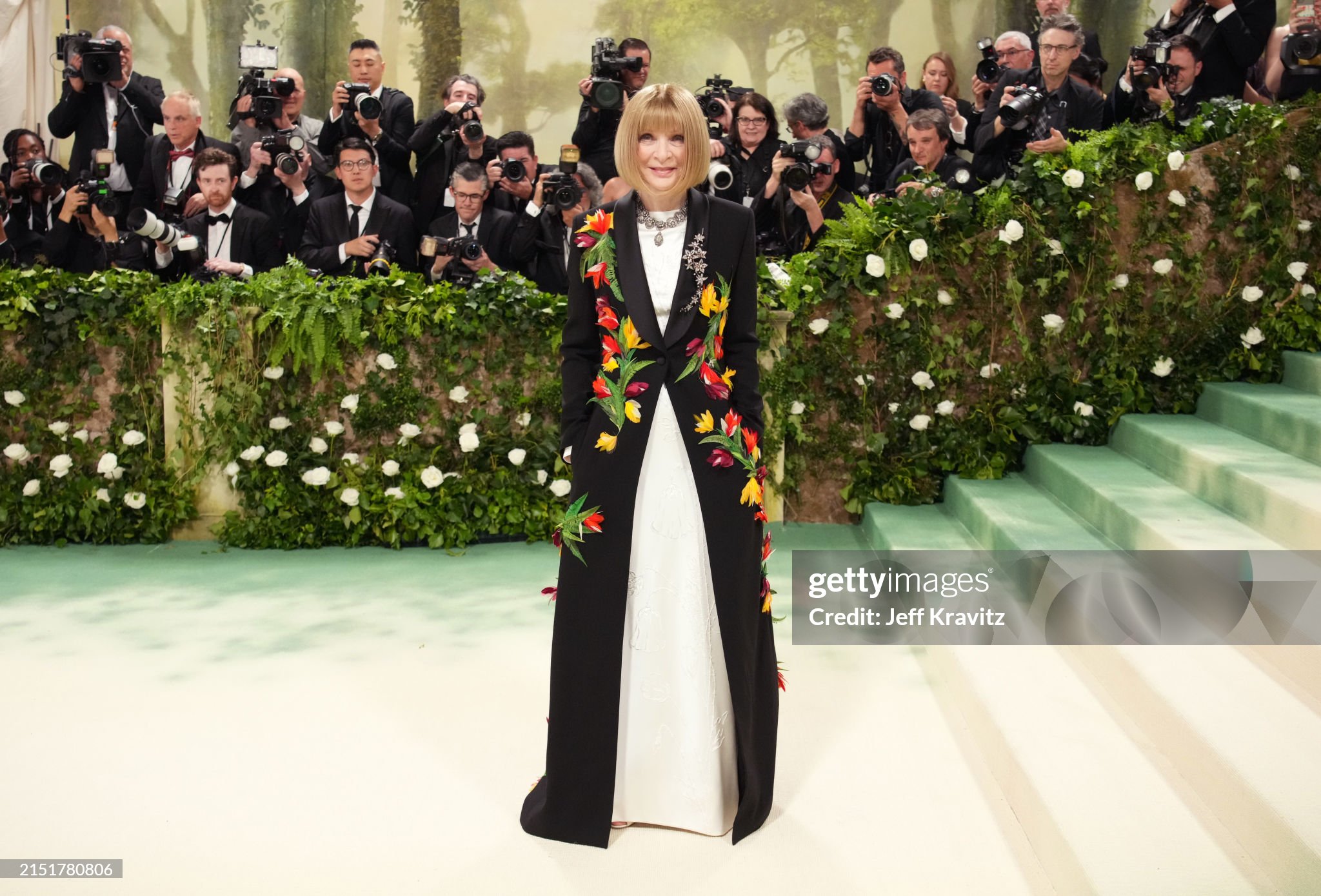When Anna Wintour came to the helm in 1995, it was still a relatively modest event, with tickets going for about $1,000 (they’re now reportedly $75,000). Costing $6m to host and raising a reported $26m for the Costume Institute, there’s no knocking the ROI gained through the annual peacocking on the hallowed steps that ascend to Manhattan’s Metropolitan Museum.
Since its modest debut in 1948 as a Costume Institute fundraiser spearheaded by fashion publicist Eleanor Lambert, The Met Gala, the annual spectacle each first Monday in May, has become almost fashion folklore and a cultural event.



It’s undeniable that the event’s historic capacity to attract a galactic array of stars; influencers, celebrities, fashion, and rock royalty is surpassed only by the Academy Awards. From Rihanna to Madonna, Princess Diana to Harry Styles, the event has always dined out on its ability to be zeitgeisty and snag the A-List.
However, despite being held in honour of an undeniably worthy cause (the preservation and celebration of the Costume Institute and the garments it is custodian of), and there being no doubt of the global influence it has now achieved, I couldn’t help but feel that it has become a caricature of itself and at odds with what’s going on in the world.
Let me be frank, I’m a huge fan of Anna Wintour’s.
I think anyone who trivialises her achievements, her influence, or her drive in putting the global fashion industry front and centre is either extremely naive or simply bitter. However, set against these turbulent times of escalating conflicts in Ukraine and the Middle East, a global cost of living crisis, the #MeToo Movement and so many other social issues, this fashion parade feels a bit out of kilter.
Of course, one could throw these accusations at similar events like Grammys or the Oscars, but as the main point of even having the Met Gala loses focus and instead becomes more about superficial one-upmanship, excessive displays of wealth, or how small Kim Kardashian’s waist is, the event is emerging as a shining example of all-style and no substance — at a time when it’s more important than ever for those in the spotlight to use their platforms to promote meaningful change.

How, in a world where we’re applauding Hannah Waddingham for calling out a photographer at London’s Olivier Awards & telling him “Don’t be a d*ck” when he asked her to “Show some leg, love”, can we also in good conscience enjoy an event that has proudly celebrated designers like Karl Lagerfeld, who famously dismissed #MeToo by saying “If you don’t want your pants pulled about, don’t become a model. Join a nunnery, there’ll always be a place for you in the convent.”
It feels as though the event has become more about celebrities and brands with big bucks trying to outdo each other on shock value, whilst worshipping at Anna’s highly curated altar, rather than the job at hand (conserving an American cultural institution). Case in point – Kim Kardashian being allowed to allegedly damage Marilyn Monroe’s iconic ‘Happy Birthday Mr. President’ dress by squeezing into it for a trip up the steps in 2022 (if that isn’t ironic then what is?).
That, coupled with the fact that many of the previous stalwarts of the Met (Rihanna, Blake Lively, Taylor Swift, Timothee Chalamet) seemingly swerved the invite, makes me feel that the event either needs a 2020s overhaul or a well-deserved break. As one British fashion editor put it bluntly: “When I go to the zoo, I want to see an elephant, a lion or a tiger. But unfortunately, the Met is now full of meerkats.”



For more reading, see my piece on five things I’ve learned from great leaders, here.

